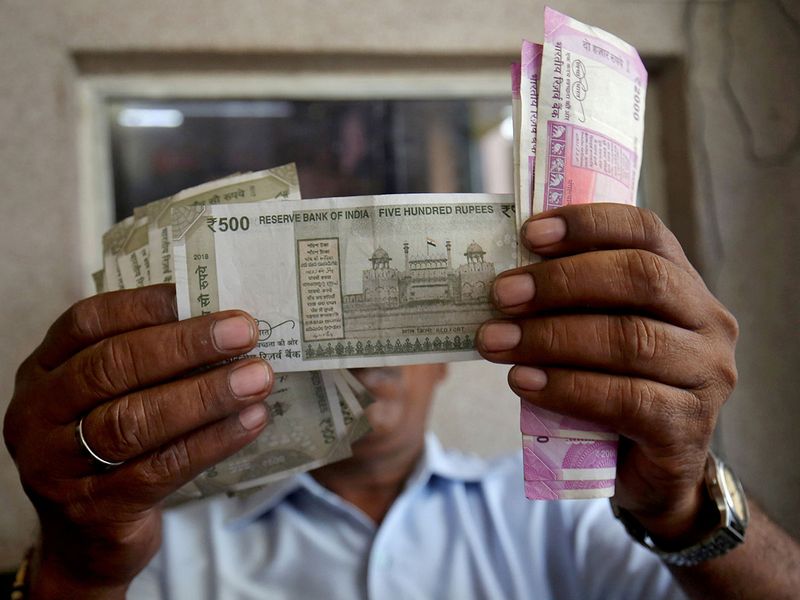
Dubai: As a result of the pandemic and the resultant flexible working conditions, a number of reports show a growing number of non-resident Indians (NRIs) working for their overseas companies from India.
Many individuals working in the US, the GCC and several European countries have returned to India and have been working from India, while being employed with a company based abroad and some have extended their stay in India.
In such situations, how is the income of the individual taxed? Let us understand the income tax implications for individuals who are working from India while being employed for overseas companies.

It all boils down to NRIs’ residential status
In case a NRI spends more than 60 days in India in a financial year (FY) and more than 365 days in the previous four financial years, you are considered as a resident in India. The 60 day-rule becomes 182 days for people who have gone abroad on employment or NRIs who are visiting India.
Moreover, from the current financial year, additional rules apply if you have Indian income of Rs1.5 million (Dh73,741) or more. In such cases, the relaxation from 60 days to 182 days gets restricted to 120 days.
While this is the generally known principle, another critical factor that determines the scope of taxability (and therefore, determines the total income) of an individual taxpayer is the residential status of the taxpayer during the financial year.
The residential status is determined based on the number of days of physical presence of the taxpayer in India (irrespective of the purpose of stay) during the financial year and preceding ten financial years.
A Non-Resident or Resident but not ordinarily resident taxpayer is taxable only on India sourced income or income received in India whereas a Resident and Ordinarily Resident is taxable on worldwide income.
India’s tax regime categorises three types of residents: Residents, non-residents (NRIs) and ‘not ordinarily residents’.

Before delving further into NRIs’ residential statuses and the role they plays in the taxes NRIs pay when working for an overseas employer from India, let’s also understand more about relevant resident statuses in India.
As per tax laws, a citizen of India or a person of Indian origin who, has been working in a different country and has come to India for a visit, will be treated as NOR (‘Not Ordinarily Resident’) in India, if the person stays in India more than 120 days and less than 182 days in the relevant financial year.
A Non-Resident or Resident but Not Ordinarily Resident (RNOR) taxpayer is taxable only on India-sourced income or income received in India whereas a Resident and Ordinarily Resident (ROR) is taxable on worldwide income.
This means resident individuals in India will be required to pay tax on the salary earned by him or her for the services rendered in India and also on the income sourced from outside India such as rental income, interest income, capital gains, etc.
So what happens if a NRI stays more than the permitted number of days in India? If you spend 182 days or more in India in a financial year (FY), you are treated as ROR or ‘Resident and Ordinarily Resident’ resident for tax purposes.
It may be noted that resident individuals may get relief from double taxation of income in India and the foreign country as per the tax treaties signed by India with other countries. However, resident Indians are required to disclose their foreign assets in their income tax return.
_resources1_16a3106df29_original-ratio.jpg)
If you are resident in India, your worldwide income becomes liable for tax in India and you are also required to report your foreign assets in your income tax return (ITR) form. This may lead to a higher tax burden compared to developed countries, tax experts reveal.
So you must check other conditions to decipher your exact residential status. Consult a chartered accountant, if need be. Remember that the residential status may be different for each financial year.
NRIs relocating to India while employed aboard: Troubles with bank accounts, salaries being credited
NRIs who are permanently relocating to India will have to convert their bank accounts to residential status.
For instance, non-resident ordinary (NRO) and non-resident external (NRE) accounts will have to be converted to resident. Foreign Currency Non Resident Account (FCNR) can be converted to Resident Foreign Currency (RFC) Account.
An NRI can open a joint NRO account with one or more NRIs or Indian citizens. The interest earned on the NRO account is subject to taxation. The tax percentage or amount is subject to holder’s tax bracket based on income earned in India. The interest earned on the NRE account is free from taxation.
NRE account is freely repatriable (can be converted to any foreign currency), while the NRO account has restricted repatriability i.e permitted remittance allowed from NRO is up to $1 million (Dh3.67 million), which is net of applicable taxes in a financial year.
An NRO account is like your regular bank savings account but has certain restrictions. In this account you can deposit your rupee earnings from India such as rent, interest, dividends etc. You can also deposit funds from abroad that are in the form of freely convertible foreign currency.
The funds in NRO account are usually from income earned locally, like rent on a property in India or certain capital account transactions like sale of property purchased prior to becoming an NRI.
Also keep in mind that interest on amounts in NRO account attracts TDS (which is tax deducted at source of income before paying the balance to the payee) at the highest rate of 30 per cent.
FCNR account is for depositing earnings in foreign currency in an Indian account. If you are certain that you will repatriate the maturity proceeds, then it is best to invest in the FCNR as you protect yourself against currency risk. Conversely, if you are certain that your investment will remain in India, NRE would be a better choice.

NRIs returning for good to India: Can opening RFC accounts benefit me?
Persons residing outside India can open NRE account with banks and interest is exempted from tax so long as he is residing abroad.
The moment he comes back to India on a permanent transfer of residence, he will cease to be a person resident outside India and the interest income from that day onwards on the NRE deposits will be chargeable to tax in India.
Only interest on the deposits, not capital, will be chargeable to tax. If the NRI wants to make a small benefit, there another account: RFC account (resident foreign currency account).
If they open RFC account, the balance in NRE account can be transferred, and if they come back to India, then interest on the RFC account will get exempted till such time the retained status of ‘not ordinarily resident’.
After return to India they can continue to be ‘not ordinarily resident’, so interest on that account will continue to be exempted from tax for two years. However, there is a catch: The interest rate on RFC account is lower than that on the NRE account.
Transfer a part of your money to the RFC account and retain the RFC account to benefit from exchange rate fluctuations. This money will facilitate you to provide for the education of your children abroad and for destination marriage of your children abroad, who you need foreign exchange.

What about forex-related charges when you get your overseas employer’s salary credited?
It depends on the location of the bank account where your salary is credited, tax experts add. Most employers credit salaries to the foreign bank accounts of employees, which means such employees have to bear the costs of forex transfers to their Indian accounts. However, in case the salary is credited to the Indian account, it can become taxable in India regardless of residential status.
Receiving your salary in your Indian account may lead to it getting taxed in India even if you are non-resident, although there are complex rules and judicial decisions at play here. A prudent precautionary measure can be to receive the salary in the overseas account and then transfer it to India.
Residency under FEMA (Foreign Exchange Management Act) is different from residency under the Income-tax Act. If you are here on a temporary visit and have not spent more than 182 days in the previous FY in India (as opposed to the current year), then, generally, you are non-resident under FEMA.
Where is tax deducted when I am credited my salary from my employer who is based abroad?
Most countries have provisions similar to TDS (Tax Deducted at Source) in India and this is likely to be deducted by your foreign employer even if you are an Indian resident in a particular financial year. TDS is a means of collecting tax on income and the amount deducted will be remitted to the Indian Government.
The foreign employer is likely to deduct TDS from your salary as per the laws of that country. You can claim it as credit while filing your ITR in India, depending on the Double Tax Avoidance Agreement (DTAA) in question. Getting a Tax Residency Certificate (TRC) from India may be required by some countries to prevent TDS but this is a manual process in India involving a physical application to the assessing officer.
Those residing in the UAE, Kuwait, Oman, Qatar and several other countries enjoy the benefit of double taxation avoidance agreement between the host countries and India. Benefits can be derived in the case of income, interest on bank deposits and withdrawal of funds.

The Double Tax Avoidance Agreement is a treaty signed by two countries. The agreement is signed to make a country an attractive destination as well as to enable NRIs to get relief from having to pay taxes multiple times. DTAA does not mean that the NRI can completely avoid taxes, but it does mean that the NRI can avoid paying higher taxes in both countries. DTAA does allow an NRI to cut down on their tax implications on the income earned in India. DTAA also reduces the instances of tax evasion.
Key takeaways?
To understand the income tax implications for individuals who are working from India while being employed for overseas companies, it is key to clearly understand your resident status, which differs with each individual – depending on when you arrive in the country and the duration of your stay so far.
So if you are a NRI planning to return to India for good, they should time their journey in such a way that their tax liability in India is reduced to the minimum as the change of non-resident status to resident will obligate them to pay taxes on their global income, including his end of service benefits such as gratuity.
Dubai-based tax experts recommend that NRIs should plan their return to India during the last two months of the financial year, i.e. in February or March, in which case he will be allowed to retain his NRI status for one year and ‘not ordinarily resident’ status for one more year, and third year onwards he will be considered resident of India.
Also, when it comes to forex-related challenges, receiving your salary in your Indian account may lead to it getting taxed in India even if you are non-resident. So, like mentioned above, a prudent precautionary measure can be to receive the salary in the overseas account and then transfer it to India.
Ensure where tax is deducted in your income, which depends on where your salary is credited when working for an overseas employer from India. If your income is credited in the country your employer is based in, and if the country – like the UAE – doesn’t have income tax deductions, then keep in in mind just forex related charges – which can be significant.








